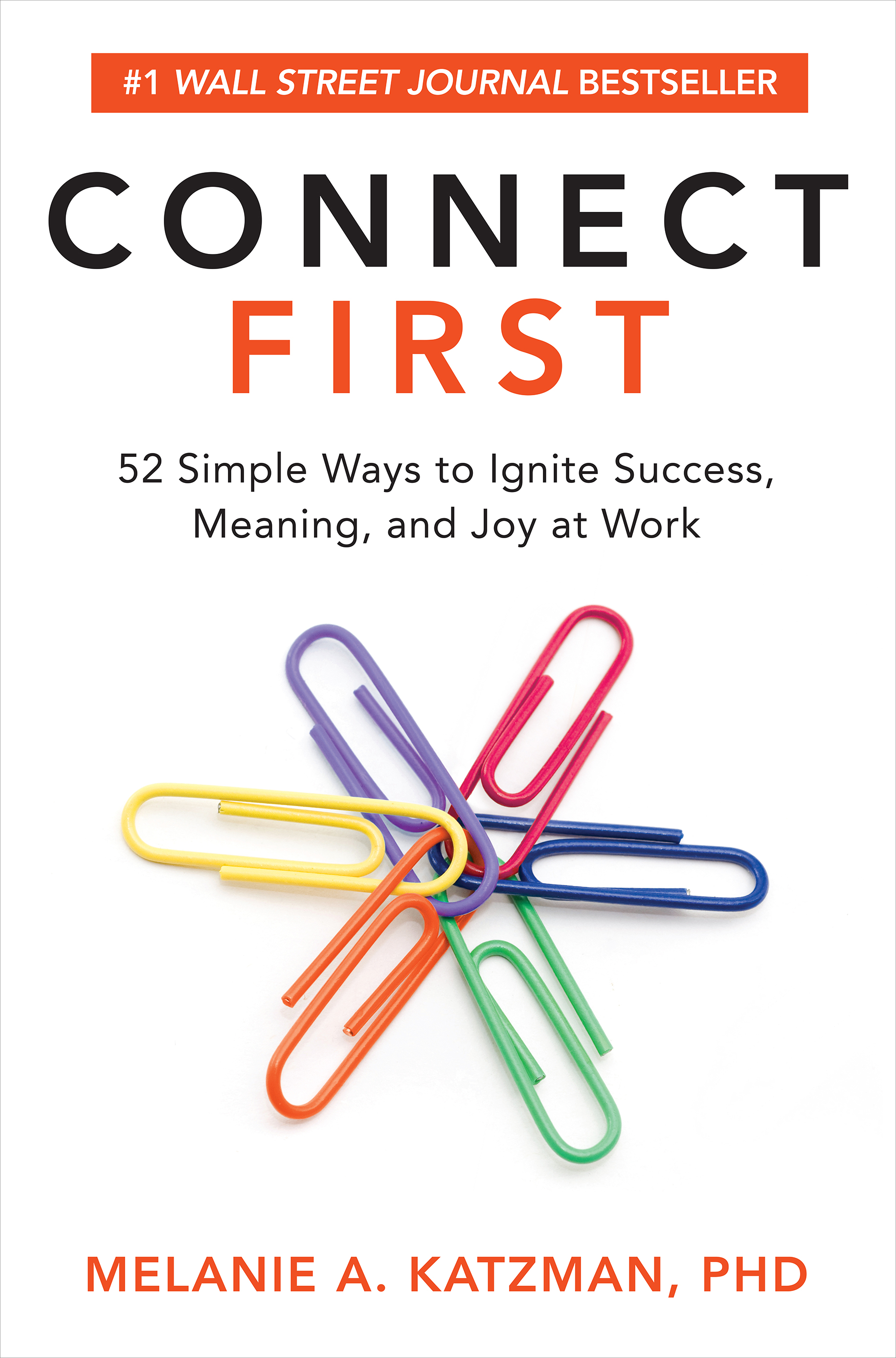We all have those crevices in our day. You know, when there isn’t enough time to start a project, you’re waiting for a meeting, the train is late, you’re stuck in line. Rather than check social media, obsess about the calories you shouldn’t have eaten, or rewrite your to-do list, try reviewing the past week and take a minute to thank someone who made a difference in your day, your project, or your mood. A sincere thank you is motivational Miracle-Gro, and yet the office ranks dead last among the places people express gratitude.
The London School of Economics reviewed 50 studies illustrating a direct correlation between appreciation and production. Similarly a study by Glassdoor found that 70 percent of workers said they’d feel better about themselves if their boss thanked them more regularly. Saying “thank you” has absolutely no financial cost, yet it generates significant returns for your organization in reputation, employee satisfaction, and output.
Acknowledging our co-workers’ efforts has selfish benefits. People who express gratitude daily experience lower levels of stress and boosted immune systems. Facebook founder Mark Zuckerberg sets a personal target each year. On Facebook’s tenth anniversary, Zuckerberg challenged himself to write one thank-you note each day. His rationale: “It’s important for me because I’m a really critical person.” He makes a good point. The harder driving you are, the more impactful those moments of appreciation can be.
Let’s face it, who doesn’t warm to a well-intended thanks? Sitting in the glittering offices of Hearst Magazines, Jayne Jamison, the SVP, publisher, and Chief Revenue Officer of The Oprah Magazine, a seasoned professional, whipped out her phone to reveal a 30-second clip of Oprah singing “Happy Birthday” to her son. Jayne was beaming, and all of us in the room basked in her reflected glory. Oprah provided a unique gift to a valued employee that could be shared with pleasure… over and over.
This Is for You If
- You’re an appreciative person.
- You’ve pushed your team beyond exhaustion, fear some will quit, and are worried about gearing up for the next big push.
- High expectations are the norm, and you often request multiple revisions.
- Your collaborators and/or support team are in remote offices.
- Your boss does a good job advocating for you.
- You manage through influence, but don’t have many direct reports.
Take Action
- Get in the habit of thanking someone each day who doesn’t expect it. Start creating a list right now of people you are often in contact with and those who are important to your work but are on the periphery. Keep the list on your phone. Scan it over your morning coffee. Start your day by making someone else’s.
- Connect “thank you” to an existing daily routine. Make a two-minute call to at least one person when you walk to the parking lot, gym, or grocery store.
- Plan your “Oprah moment.” How can you offer thanks that has your personal stamp? Frame a picture of you and a valued employee at a key event (or just partnering during a mundane day). Sign a copy of the brief your paralegal helped you prepare (and you argued in front of the Supreme Court).
- Be genuine and specific. Your appreciation doesn’t have to be task-oriented. Sincerely convey the positive emotional impact that someone’s actions have had on your own life or on the lives of others. Acknowledge that person’s sacrifice.
- Look someone in the eye and deliver the thanks in person if possible.
- Don’t delay. Sometimes we wait to say thanks, intending to do something special, and then the moment passes. You can always thank someone twice. Use the dictation function on your phone. Immediately send a text or quick email saying, “I just left the meeting with X, and there’s no way we could have performed at the level we did without you.”
- Prepare a handwritten message that allows the person to physically reference and touch your appreciation. A Post-it note left on someone’s desk or computer “sticks” around for a long time.
- Make an appreciation kit, a Ziploc bag containing some stationery and stamps. Tuck it into your work bag or desk drawer. Everything is ready the next time you have an impulse to jot off a note of thanks.
- While writing this, I was surprised by a floral delivery thanking me for leading a successful corporate facilitation last week. Even paid “vendors” appreciate the personal touch.
- Remember your boss appreciates hearing “thank you” just as much as you do. Be on the lookout for authentic ways in which your superiors have been inspirational or supportive.
- It’s never too late to say thanks. Be a blast from the past and drop a note to a former professor, mentor, or colleague and let that person know how they have continued to influence you. Don’t worry if they will remember you. They will (for sure) after you write.
Keep in Mind
- Avoid adding a request to the “thank you.” Let the appreciation stand alone.
- A sincere thanks is more meaningful and less open to misinterpretation than an expensive gift.
- Organizing team drinks or events may seem like a good way to show appreciation, but it may also put pressure on people who have long commutes or tight schedules. Be sure the mode of thanks fits the needs of the person you are recognizing.

Follow us here and subscribe here for all the latest news on how you can keep Thriving.
Stay up to date or catch up on all our podcasts with Arianna Huffington here.


